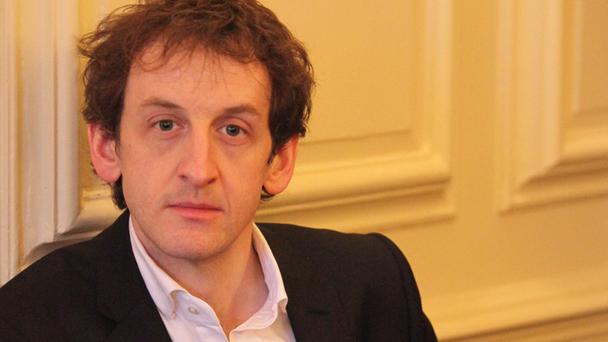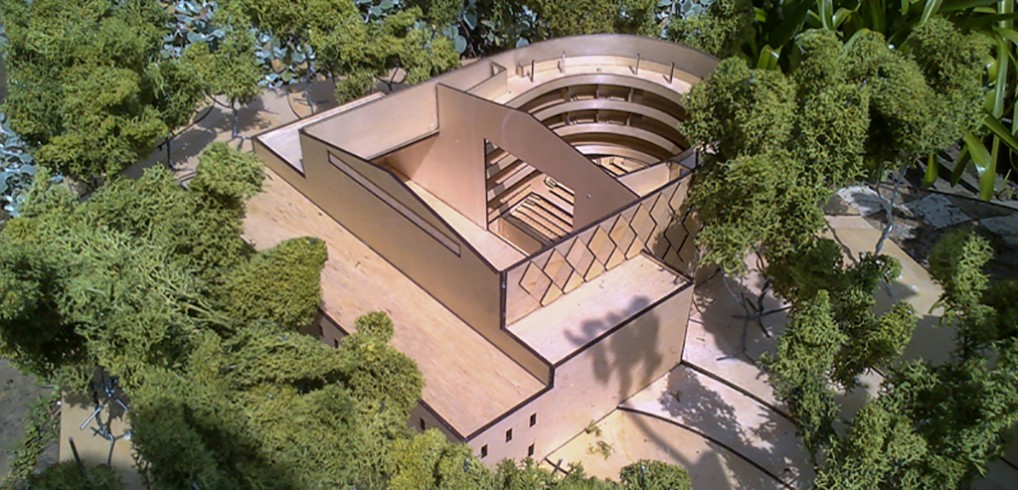Handel: Messiah
Bach Consort Wien, Ruben Dubrovsky
NAXOS 2.110387
Interesting for those of us so used to English singers performing an essentially English composition, to hear it in a German recording. The Bach Consort Wien draw on a very different background and yet come to surprisingly familiar conclusions. If the ornamentation in places is refreshingly different the main thrust of the work is entirely – and pleasingly – conservative. Soloists are secure, even where they are obviously not singing in their first language. Ruben Dubrovsky conducts with a clear ear for Baroque temperament and the whole is entirely pleasing.
Verdi: Un Ballo in Maschera
Bayerische Staatsoper, Zubin Mehta
UNITEL 739408
This production, recorded a year ago, is set in the 1930s with a sense of inter-war decadence to it which proves convincing, enabling the disparate elements to gel in a convincing way. It is well sung throughout and was extremely well received when first seen in Vienna. It is so good these days that an unusual presentation can be released so soon after the original staging and while the singers are still very much with us for the performance to be still in the repertoire.
Wagner: Der Ring des Nibelungen
Staatskapelle Weimar, Carl St Clair
ARTHAUS 109319
It almost seems unfair to try to comment on a complete recording of The Ring within a review page such as this. There is so much one could say of this fascinating and at times infuriating interpretation that one would hope for far more. However, to sum up, the approach which Michael Schulz takes is to include the gods far more frequently and to allow late 20th century iconographic to inhabit Wagner’s world. The Valkyries march on like the Von Trapp children, the final act of Valkyrie being set in a girls’ dorm. The gods in Rheingold are eminently human, with human needs and fallibilities. The strong pro-feminist line throughout finds its fulfilment at the end of Gotterdammerung when Brunnhilde walks off with her confidant, Grane, and leaves the, newly enfranchised, women to bask in the spring rain.
Much of this is splendidly accomplished. Das Rheingold is intimate and often compellingly naturalistic. If Die Walkure has a slightly weaker Wotan it does not inhibit an excellent overall performance, with a stunning visual climax. Siegfried is let down by a weak Wanderer, thought the staging as a whole is less effective here – no forging, no dragon, no fire.
Gotterdammerung works better, with Catherin Foster a fine Brunnhilde and Norbert Schmittberg equally secure as Siegfried. The staging works here, if only because it reflects what we had come to expect and never undervalues the score.
Carl St Clair is adept at keeping the long paragraphs of the score moving effortlessly and allowing the text to cut through with ease. Worth a look and possibly worth keeping if not quite up there with some of the finest we now have.
AMERICAN VOICES
St Thomas Choir of Men & Boys, Fifth Avenue, New York
John Scott, conductor
RESONUS RES10187 74’18
This recording features some now well-established sacred choral works by American composers including Bernstein’s Chichester Psalms, Copland’s In the beginning and Barber’s Agnus Dei. Alongside these are lesser known and more recent works by Randall Thompson, Nico Muhly, Daniel Castellanos & Ned Rorem, as well as an arrangement of Deep River by Gerre Hancock. The recording beautifully captures the choir in performances of conviction and emotion. A lovely production.
KODALY & DOHNANYI – Chamber Works for Strings
Simon Smith & Clare Hayes (violins), Paul Silverthorne (viola), Katherine Jenkinson (‘cello)
RESONUS RES 10181 70’19
This is a very welcome release of lesser known but significant works for strings from the first half of the twentieth century. The performances are fresh and polished. Two pieces are by Zoltan Kodaly – Duo for Violin & Cello, Op 7 and Serenade for 2 Violins & Viola, Op 1.Erno Dohnanyi’s Serenade for String Trio, Op 10 completes the CD.
LABYRINTH – Mozart, Ligeti & Bach
Dudok kwartet, Amsterdam
RESONUS RES 10180 55’24
More music for strings makes up this CD which presents a fascinating programme with music from different eras linked together by the theme of counterpoint and labyrinth. There is a shocking but delightful juxtaposition as Mozart’s String Quartet No 14 in G major leads into String Quartet No 2 by Ligeti which features the micropolyphonic structures which he pioneered. The recording ends with a return to what we may regard as more traditional music but which in themselves are boundary-pushing compositions: four Canons by the master of musical simplicity-in-complexity, JS Bach. Highly recommended listening.
TOCCATA: TOUCHED
Alex McCartney, theorbo
VETERUM MUSICA VM015
A sublime recital of works by G G Kapsberger (c1580 – 1651). Although complex music this is a very relaxing listening experience as Alex McCartney breathes life into this ancient and mostly forgotten music. A lovely production.
HANS LEO HASSLER – Orgelwerke (Suddeutsche Orgelmeister Vol 5)
Joseph Kelemen,
Freundt organ (1642), Stiftskirche, Klosterneuburg & Gunzer organ (1609), St Martin, Gabelbach
OEHMS CLASSICS OC658 79’51
This recording presents wonderfully authentic performances matching this music to near contemporary organs. The music is played with feeling and with great variety in registration. There is a good contrast of style and structure throughout the programme which includes an Orgelmesse, chorale preludes, introits, canons and ricercares. I am left wanting to listen to further volumes in this series.
MARCO ENRICO BOSSI- Complete Organ Works Vol 12
Andrea Macinanti, organ (with Giovanni Battista Fabris, violin & Elena Perera,’ cello)
Organ of Duomo di Thiene
TACTUS TC862790 (2CDs) 59’11 & 56’07
At first glance this recording seems an unnecessary volume in a series dedicated to the works of a single composer. However, on reading the notes and listening to the music I have come to see how important this volume is! Bossi championed the music of many of these ‘Old Masters’ and by doing so breathed new life into them, cherishing the musical structures and ideas from past generations but not being afraid to develop them further and incorporate his own ideas alongside them. The CD is an enjoyable listening experience in its own right but the value lies more in helping others to appreciate how composers draw on the legacy left before them.
Borodin: Piano Quinter in C minor; Cello Sonata in B minor;
String Quartet No2 in D major
Goldner String Quartet, Piers Lane piano
HYPERION CDA 68166
A pleasure throughout, and even more so to have the rare cello sonata in addition to more familiar works. Hyperion have done it again – filling gaps in the market and proving their choice right!
Shostakovich: Piano Concertos Nos 1 & 2; String Quartet No8 arr Giltburg
Royal Liverpool Philharmonic Orchestra, Rhys Owens, trumpet, Vasily Petrenko
NAXOS 8.573666
Boris Giltburg is a most convincing soloist for the two Shostokovich piano concertos with a lively trumpet in the first concerto from Rhys Owens. The additional pleasure here is the arrangements of two string quartets for piano solo. We have two movements from the Op68 quartet – the Waltz and Allegro – and a complete performance of the String Quartet No 8. This later was made with the permission of the Shostakovich family and proves to be a darkly defined composition which is not out of place as a solo piece.
Johan Botha
ORFEO C 906 171 B
These recordings were made in Vienna between 1997 and 2014. Johan Botha was an heroic tenor, most at home in Wagner and Strauss, both of whom are represented here, plus a fine recording of Gott, welch Dunkel hier when he appeared as Florestan in Beethoven’s Fidelio. He was seen most recently via the Met’s cinema links as Walter in Die Meistersinger which is reflected here in a live recording of the Prize Song. His untimely death last autumn robbed the opera world of a fine singer.
The excellency of hand: English viola da gamba duos
Robert Smith & Paolo Pandolfo
RESONUS RES10186
This cd is a delight throughout, bringing together 22 pieces of early music, most of which will be unknown to the majority of listeners. There are works by Christopher Simpson, John Jenkins, Simon Ives plus the gentle intervention of a single work by Robert Smith which is totally in keeping with the seventeenth century surroundings. The sheer grace and delight here speak for themselves – just hear it for yourself!
Medtner and Rachmaninov Piano Concerti
London Philharmonic Orchestra, Marc-Andre Hamelin, piano, Vladimir Jurowski
HYPERION CDA 68145
The Rachmaninov is of course very familiar and here equally well performed. The novelty is the Medtner which is far less well known and manages to keep its place surprisingly well alongside its more familiar partner. The two composers knew each other and Rachmaninov helped his younger friend who never had the same level of exposure or following. The differences are obvious even in the brief consideration of these two works. Medtner is a pianist and composes from the point of view of the soloist, while Rachmaninov’s ear is for the whole orchestra.
Max Bruch: String Quintets and String Octet
The Nash Ensemble
HYPERION CDA 68168
What is it about Octets that make them so satisfying? The great ones are out of this world and I have to include the Bruch Octet alongside them. Those who are besotted by the violin concerto – overplayed but never quite outstaying its welcome – will surely delight in this. When put alongside the two string quintets this it surely a most attractive recording.
Luigi Legnani: Works for Guitar
Raffaele Carpino, guitar
TACTUS TC 791201
I have to admit to knowing nothing of Luigi Legnani but these really are lovely works and so easy on the ear without ever being obviously populist. Working within the early part of the nineteenth century he was a friend of Rossini and both played and sang tenor as well as composing. He died almost forgotten in 1877 having composed 250 opus numbers plus a large number of unnumbered pieces, many of which are now lost. This recording should go a long way to restoring his name if only because it is a pleasure to listen to and beautifully crafted throughout.
Music for the 100 Years’ War
The Binchois Consort, Andrew Kirkman
HYPERION CDA 68170
This recording comes out of a collaboration between the Binchois Consort and the Castle Museum, Nottingham. The detailed notes include a wide range of photos of medieval alabaster carvings which reflect the music and life of the period. The notes are detailed and the translations are precise for each item. This alone makes it something of a rarity when notes can be skimped or often non-existent. To this one must note the fine recording itself and the close relationship between music, text and image. A very welcome recording of works by Alanus, Dunstable, Forest and Power plus anonymous items.



